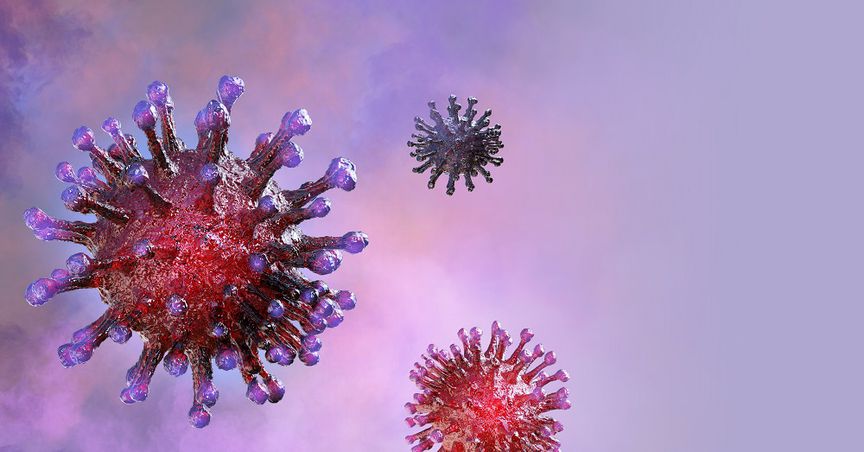The epidemic Covid-19 seems to slack off its speed in the United Kingdom. The coronavirus spread has shown the signs of slowing as a result of country lockdown announced a week ago, Neil Ferguson, a professor of mathematical biology at Imperial College London, was reported saying. He also added hopes of antibody tests to be possibly ready in days.
Professor Ferguson detected the early signs of lockdown measure and stated that it had been observed that at present ‘epidemic is just slowing’ in Britain.
On the spread of coronavirus in the UK, the government first announced the partial shut-down to prevent disease transmission. But after the mounting political pressure and a sharp increase of confirmed cases, Prime Minister Boris Johnson imposed a strict police-enforced lockdown in all the parts of the country. The measure, however, came days after the European countries adopted a similar approach to contain the spread of the virus.
Professor Ferguson also pointed to the stability in new hospital admission due to the draconian measures the Britain government has implemented. As per some reports, the number of people getting admitted to hospital due to COVID-19 has stabilised at around 1,000 per day, and the daily increase in deaths has also fallen significantly for the last two consecutive days to 30 March 2020. New figures have also suggested that there has been around a 50 per cent increase in the recovery rate.
However, the health officials believe that it would take another two to three weeks to precisely identify the extent of the slowdown in the spread of the virus. It is due to the lag between the transmission rate and that of hospital admission.
Ferguson stated that about a third or 40 per cent of people don’t get any symptoms and therefore cautioned that it would not be a wise decision to make firm extrapolations by relying on the data. He further confirmed that the antibody tests are in their final stage of validation now and could be ready in ‘days rather weeks.’
What is coronavirus?
The coronavirus is a type of virus that causes respiratory disease, severe acute respiratory syndrome coronavirus 2, which has been termed by the World Health Organisation (WHO) as COVID-19. It is a contagion in nature and can be spread from person to person through droplets from coughs and sneezes. Its symptoms include fever, cough, and shortness of breath, which can cause death in some severe cases.
This virus was first discovered in the city of China, Wuhan, in December 2019. Although its source is not officially confirmed but based on early hypothesis, many health officials associate the virus’ origin to a seafood market in Wuhan.
Sanitisation of hands is considered as one of the main sources to prevent the transmission of the virus as hand to mouth is examined as the major contagion pathway for coronavirus. Therefore, all the affected countries have declared stringent guidelines of social distancing, and many have even imposed the lockdown as a measure of a public health emergency.
How the lockdown helps in containing the contagion?
Lockdown forces the public to stay at their homes and avoid attending any in-person meeting or public gatherings. The government orders are imposed on all factories, shops and other business units to shut temporarily in bid to contain the virus spread. However, the rules come with exception to certain circumstances and sectors that keep the supply of essential goods running like food, vegetables and medicines.
If we go through the initial results, we can say that the lockdown has been effective in the United Kingdom in slowing the pace of virus spread and infection rate. The social distancing is considered at the core to contain the virus as the studies have proven that symptoms are reflected in people within the period of 14 days of exposure to the virus, also called incubation period for COVID-19. So, that means there are cases where people are not even aware of them being infected and could possibly transmit the virus to others, unknowingly, if they do not follow social distancing.
At present, it seems the only probable method to break the chain of pandemic coronavirus since no vaccine has been discovered yet. However, clinical research and trials are ongoing in many parts of the world to develop a vaccine that could potentially cure the novel coronavirus.
It could be six months or longer before the UK returns to normal: Deputy Chief Medical Officer
UK Deputy Chief Medical Officer Dr Jenny Harries recently had stated that the lockdown could be extended to ‘six months or longer’ with the view to contain the virus. In a press conference on Drowning Street, Dr Harries explained that over the next three to six months, UK would have three weeks long review to assess whether the country has successfully overcome it and see at which point the UK can get back to normal.
However, she added that this doesn’t mean that the country would be in a complete lockdown for a period of six months. That statement indicated that the stretch of the lockdown period could be applicable to the parts of the country, with some standard rules and specifications.
Coronavirus infection cases and mortality rate
In the United Kingdom, the number of confirmed cases of coronavirus has increased to 19,526 while the death toll rose to 1,228 (Source: WHO Dashboard), as on 31 March 2020. The mortality rate is highest in England with more than 1,000 deaths recorded in the region. The UK officials confirmed that they cannot tell the people that when the virus will end because they can’t.
As per the latest information, Prince Charles, PM Boris Johnson, the chief medical officer Chris Whitty, the health secretary Matt Hancock, Johnson's chief adviser Dominic Cummings have been tested positive or are showing symptoms of the coronavirus. It reflects the impact of community transmission of the virus; however, as per the media reports, they are all self-isolating.
On Sunday, Prime Minister Boris Johnson sent across a message in a video recorded from his flat above Downing Street, where he is in self-isolation. He thanked who have been staying at home and praised the 20,000 former NHF employees who have joined back to work during the coronavirus outbreak.
Johnson said ‘We (Britons) are going to do it, we are going to do it together.’ He further expressed his gratitude by stating that one thing the coronavirus has surely proved that there really is a thing called society.
He stated that the country could save many thousands of lives as well as reduce the pressure on NHS by containing the spread of the virus. However, Prime Minister had already warned Britons that it would get worse before getting any better.
Sometimes back, Public Health England (PHE) had said that for self-isolating people, millions of 15-minute home coronavirus tests would be made available through retail or through Amazon delivery. Though, the government’s medical and scientific advisers had said that they needed to be certain, the tests worked before they could be made available. The Prime Minister had said that they would offer the antibody tests when they could.





